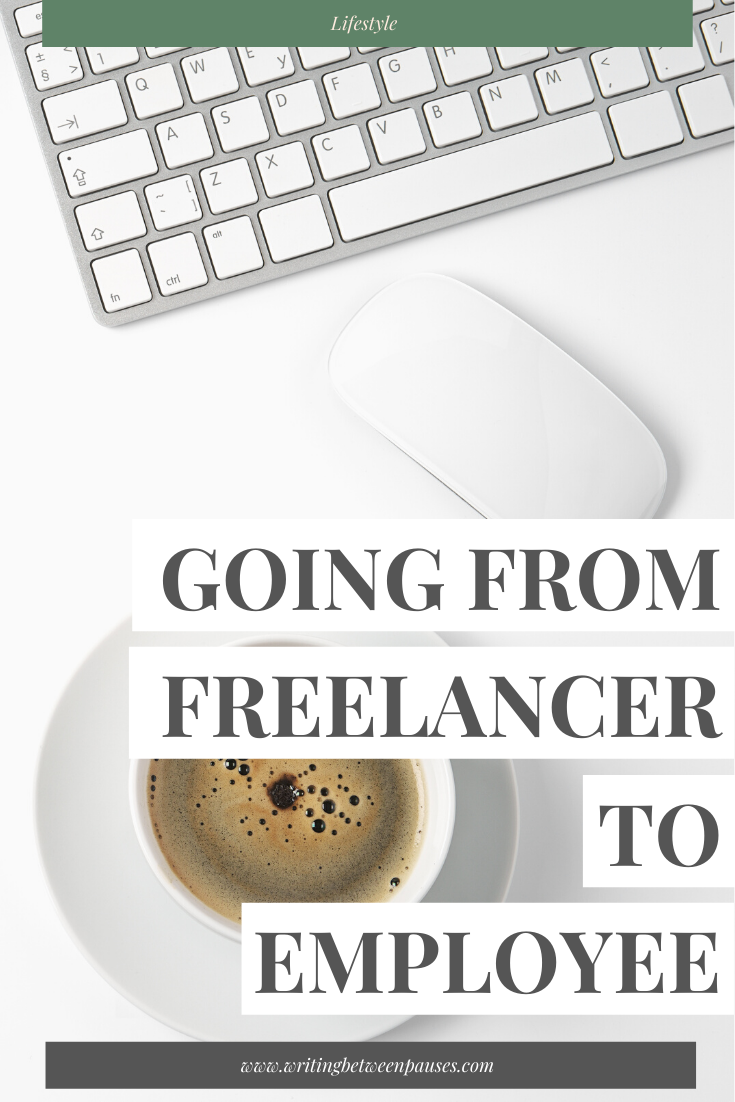When I started writing this blog post, I tried to find the previous one I thought I remembered writing around July of last year. As it turns out, I didn’t write very many blog posts last July—I wrote a few of my last beauty reviews and that was it. It wasn’t until August that I wrote a blog post about going freelance—and even then, I didn’t really talk about what had happened, just that I had been laid off and it sucked and I had one of two options. (You can read my first blog post about going freelance here.)
I found the blog post I thought I had written in July and it turns out, I wrote it in November. And again, in that blog post… it was in this blog post that I talked about being laid off and what they meant for me and how I didn’t want it to be the overwhelming focus of my life. (You can read that blog post, about resiliency, here.)
As it turns out, my desire to have the lay off and folding of a company I’d worked at for the majority of my career be the focus of my life wasn’t entirely possible. I’ve still spent time talking about it privately for months; at least once a month, something or other comes up about this company and I have to talk about it or interact with it. I still get calls about this company from the Oregon Department of Employment (fun!) and I still have to wonder: who, exactly, was I looking for?
I haven’t known how to write about what happened to me or this company (agency) that I worked for. It’s not my goal in life to make people miserable or to out people. I love gossiping privately, but this is one of those situations where the gossip isn’t that fun. Maybe because so many people’s lives were at stake. At first, I didn’t feel like it was my story to tell; I wanted my previous employers to be ahead of their own story and reputation and to control the narrative, without feeling like they were pressured by their former employees.
In an ideal world, that is what would have happened. It isn’t what happened unfortunately.
Here’s the truth about my being laid off: I got really, really screwed. My former employers still owe me money—over $5,000 to be precise—and it’s money that, over the last year, I have thought about repeatedly in an “I could really use that as capitol for my own business, to be honest” way. However, I’ve had to deal with the fact, internally, that I will never receive that money.
I will also never receive an apology. I know that now too. And they will never try to get ahead of the gossip or story or rumors about what happened. A lot of explanation is left to employees, which makes it hard for us to talk honestly about our experience without feeling like liars or poor sports, or as if we’re vindictive and out for revenge. None of those things are true.
But how can we talk about what happened when no one is being honest? It’s still not my place to talk about why my former workplace closed. But my decision to go freelance was impacted by one, large fact: I didn’t ever want to be screwed over for money like I was. I wanted to control my money and my product.
I lost all my work for 5 years. I have no portfolio, despite running social media for multiple businesses over 5 years, rewriting websites, writing blog content… it’s gone. All the proof of what I did is gone. And besides, as an agency employee to an agency that no longer exists, I can’t even say, “Well, I did X work for X client while at X”—because that place doesn’t even exist anymore, the bridge with the client has been burned so badly that our work was effectively wiped, and I don’t even have emails to back me up.
At the time I wrote my freelance announcement, I did so with the thought that I didn’t want to spill any “tea” so to speak. I just wanted to make people aware of what I was doing and how it was changing my life. But a big part of my motivation, at that point, was total independence. If a business can go under at any moment, then why not be in control of that business at least? I lost thousands of dollars to a business I had no stake in and nothing to show for. If I’m going to be at risk like that again, it might as well all be on my own shoulders.
This is all to say one thing: going freelance was still an incredibly hard decision. Some days are definitely easier than others. I’ve learned a lot over the last year and I hope that by sharing my story in my career it helps other people make better decisions for themselves and their families.
1. Networking isn’t as terrifying as I thought it would be.
Networking was the big scary idea of freelance that I always dreaded and hated. I didn’t know how to do it and what I did know about it, I didn’t particularly like. It stressed me out in ways that I didn’t really know how to identify.
The truth is, though, that networking is just… being friends with other people.
Networking gets a really bad reputation as being shallow and entirely favor-focused. And, of course, there are some people who use networking very shallowly. That being said, there are lots of people using it in very positive ways that aren’t so bad. I’m one of them!
I genuinely want to be friends with everyone I interact with in a networking way. I want to help them grow. I don’t ever approach anything with the “what can I get out of this?!” mentality. It’s just about building a relationship and seeing what happens. There will be lots of business relationships where I don’t see any “return”—and that’s fine! That’s just life!
So, networking isn’t so bad. And so much of my business comes from networking. I’d be really lost without it.
2. Project management is hard.
If you’re a project manager and you’re reading this, please know that your job is so vital and important.
Because it’s really, really, really hard to manage multiple projects and stay organized. Especially if you’re the one doing the work!
So much of my time goes to admin tasks: keeping Asana organized, making sure my calendars are up to date, invoicing, emails, everything. It all takes so much time. Then, when I start a new project, creating it in Asana, updating tasks, creating due dates… it’s so much work.
Alongside that, managing client expectations is part of project management and, oh my goodness, that is hard too. Staying up to date with multiple clients, keeping them updated, using their various task management and communication systems, scheduling meetings… it takes a lot of work!
This is the hardest part of freelance for me. I thought networking would be my bugbear, but it turns out to be actually managing and organizing projects.
3. Using cycle tracking helps plan my month.
Is this a big disparate to the first two items? Yeah, a little bit.
It was last year that I started noticing something that happened to me month-to-month: I realized that about a week before my cycle started, I had absolutely no energy or motivation. I often let this get me down: why can’t I get anything done?! But then, like clockwork, I would get a huge burst of creative energy usually a week before I ovulated—and I would stay in that energetic phase for about 2 weeks.
As it turns out, my experience is not unique. I randomly googled, “Why am I so creative when I’m ovulating?!” and it turns out, there is a whole system to this. Here are a few great resources I’ve found:
For me, my monthly calendar is broken down week-by-week:
The week of my period, I avoid meetings or large events. I simply won’t have the energy and honoring my body’s needs are more important. I usually do a lot of admin tasks during this time, as well as invoicing and planning my month financially.
The week before ovulation, I work on calendars for the next month (so in June, I start my July calendars for clients). I’m ramping up my energy and feeling more creative, so this usually works out.
The week I ovulate, I schedule meetings, launches, new client consults, and more. This is my most productive week always. I do most of my copywriting and graphic design this week for the next month.
The week after I ovulate, I usually schedule in more time to rest after a busy and productive time, focus on admin tasks, analytics, reporting, and client relationships.
A lot of this organization has to do with how my exact cycle lands during the month (which will be different from roughly 75% of the population!)
It has definitely helped me to avoid getting in the habit of thinking, “I’ve lost my mojo, I don’t feel creative or energized by my work!” that then effects the rest of my month. This helps me so much with meeting deadlines. I’m so glad I discovered it and started organizing my calendar effectively.
What a year it has been, huh? I can’t believe we are getting so close. A year ago this week, I was moving into my new house with absolutely no idea what was on the horizon. It’s always good to look back and think about how we’ve changed and what we’ve learned over the last year.



















